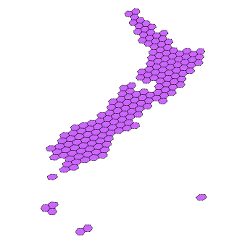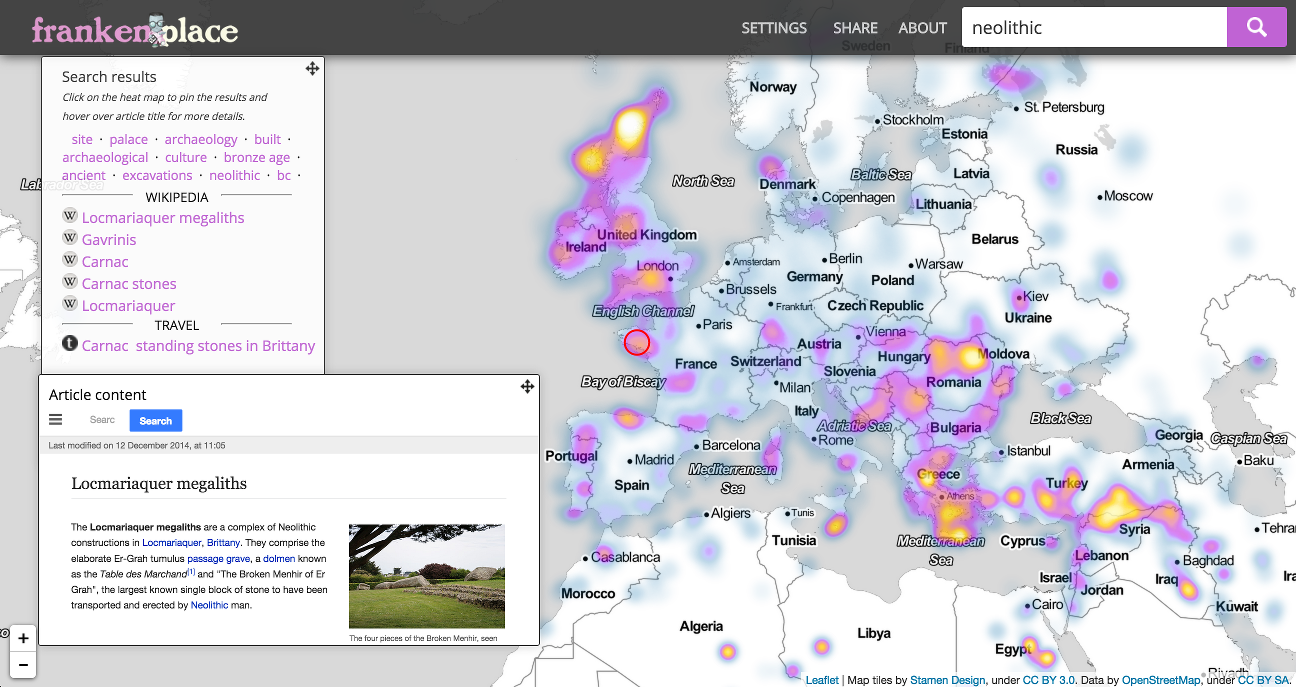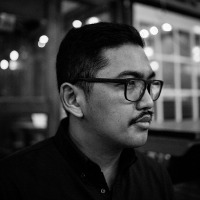The Geospatial Knowledge Exploration and Acquisition (GeoKEA) research group is exploring new ways of using computing technology to advance human understanding of our environment and world. We are interested in understanding, modeling, and improving how the people who want to learn about the world (e.g., scientists, students, and policy makers) interact with and make decisions based on geographic knowledge represented in a computer. The research undertaken by GeoKEA is both explanatory and constructive. In the first case we develop theories to explain how the information that we produce and share in digital form reflects human conceptualizations of the world. In the second case we build software tools that help people use geographic information better to solve problems. Our research methodology is informed by methods from data science, machine learning, spatial information science, interactive systems, and cognitive science.
New article “Gaze-Guided Narratives: Adapting Audio Guide Content to Gaze in Virtual and Real Environments” has been accepted in CHI 2019. Link
New article “Where to go and what to do: Extracting leisure activity potentials from Web data on urban space” has been accepted in Computers, Environment and Urban Systems. Link
New short paper “From spatial representation to processes, relational networks, and thematic roles in geographic information retrieval” has been accepted for presentation at the 12th Workshop on GIR. Link
New short paper “A Critical Look at Cryptogovernance of the Real World: Challenges for Spatial Representation and Uncertainty on the Blockchain” has been accepted for presentation at GIScience 2018. Link

Discrete global grid Linked Data gazetteer service

Geographic exploratory search engine
 Ben Adams is a senior lecturer in the Department of Geography at the University of Canterbury. He received a PhD in Computer Science with an emphasis in Cognitive Science from the University of California, Santa Barbara. He has expertise at the intersection of geography, geographic information science, and computer science, including the application of machine learning, text mining, statistical methods on big data, and other high-performance computing tools for geographic analysis. Previously, he worked as a postdoctoral researcher at the National Center for Ecological Analysis and Synthesis in Santa Barbara, CA, USA and more recently as a research fellow at the Centre for eResearch at the University of Auckland.
Ben Adams is a senior lecturer in the Department of Geography at the University of Canterbury. He received a PhD in Computer Science with an emphasis in Cognitive Science from the University of California, Santa Barbara. He has expertise at the intersection of geography, geographic information science, and computer science, including the application of machine learning, text mining, statistical methods on big data, and other high-performance computing tools for geographic analysis. Previously, he worked as a postdoctoral researcher at the National Center for Ecological Analysis and Synthesis in Santa Barbara, CA, USA and more recently as a research fellow at the Centre for eResearch at the University of Auckland.
 David Garcia is a mapmaker. He is a PhD student focusing on crowdsourcing geographic information for community development and humanitarian action. He used to work as a geographer and urban planner for the United Nations and other organisations in places hit by disaster (Super Typhoon Haiyan) or conflict (Marawi siege) in the Philippines. His hobby is to make good maps, which he shares for free (https://www.mapmakerdavid.com). David is also a volunteer of OpenStreetMap (OSM), which is about sharing and making “free geographic data for the world” (https://wiki.openstreetmap.org).
David Garcia is a mapmaker. He is a PhD student focusing on crowdsourcing geographic information for community development and humanitarian action. He used to work as a geographer and urban planner for the United Nations and other organisations in places hit by disaster (Super Typhoon Haiyan) or conflict (Marawi siege) in the Philippines. His hobby is to make good maps, which he shares for free (https://www.mapmakerdavid.com). David is also a volunteer of OpenStreetMap (OSM), which is about sharing and making “free geographic data for the world” (https://wiki.openstreetmap.org).